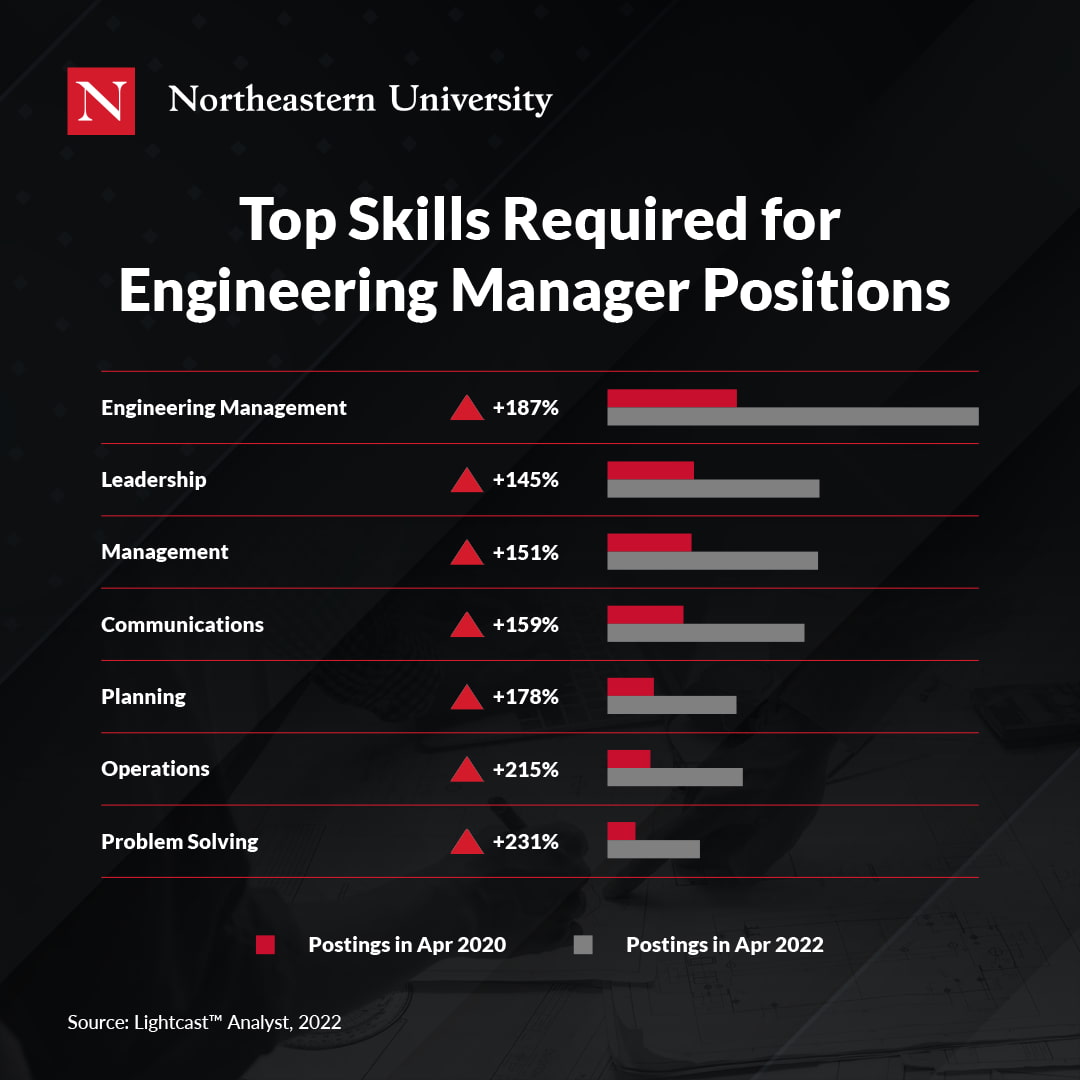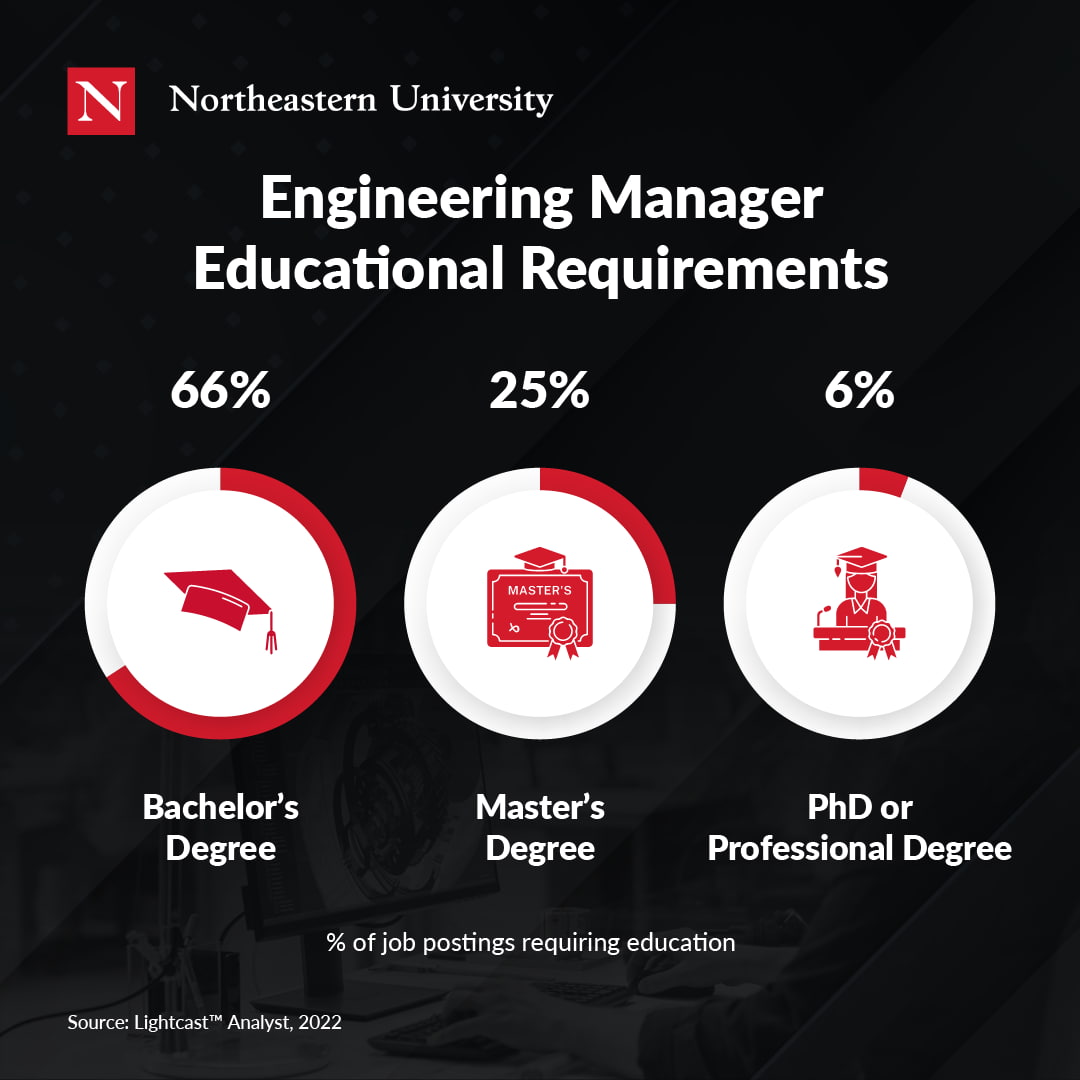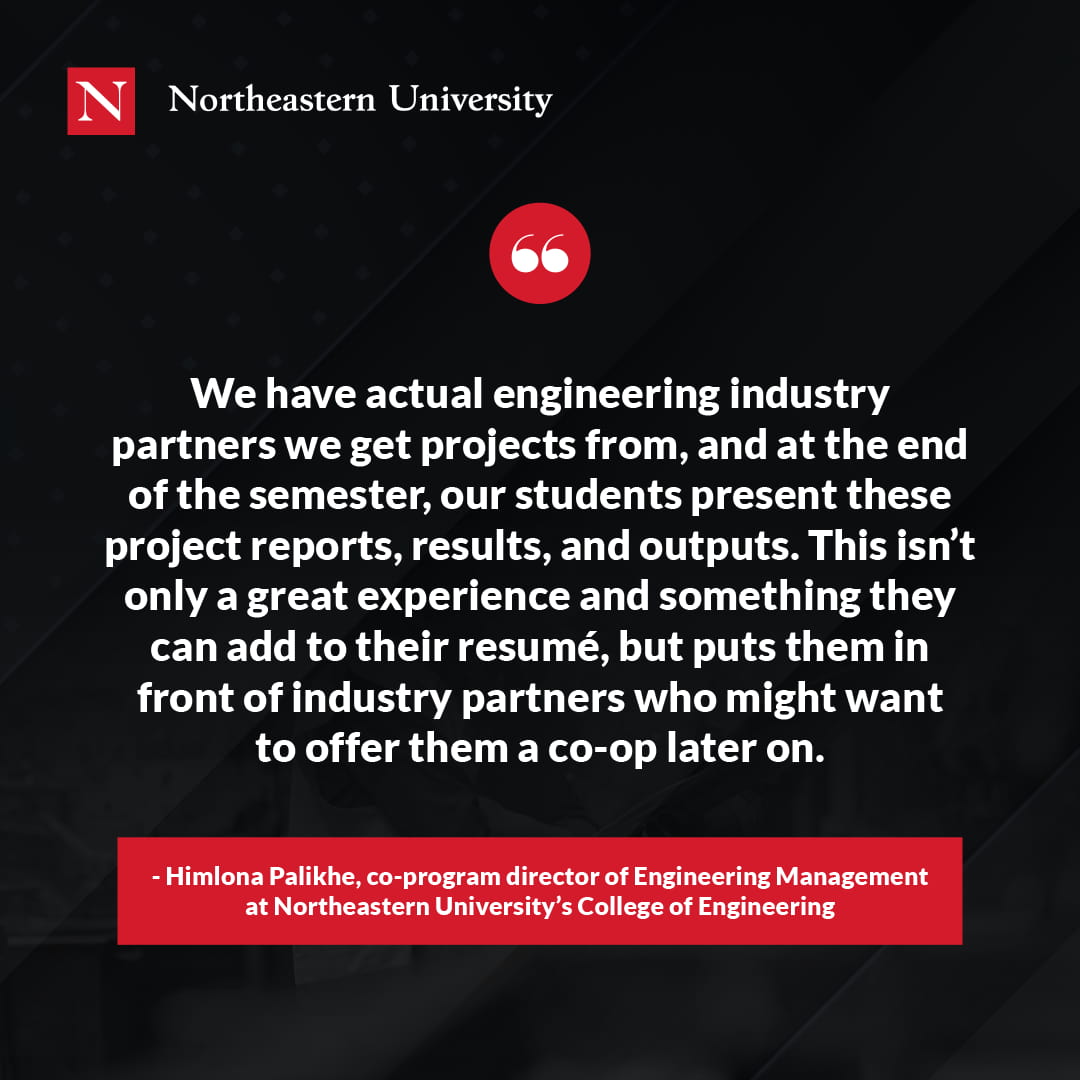Engineering is a highly technical field that requires a specialized skill set. As a result, applicants need certain skills and qualifications listed on their resumé to remain competitive in today’s job market. Recent graduates or professionals looking to stay ahead of the curve in the constantly evolving engineering industry need even more competencies to be successful leaders in engineering management.
Here’s what you need to know about engineering management, what skills are required, and how you can develop these competencies to succeed in this exciting new field.
What Is an Engineering Manager?
In an industry that’s both vast and dynamic, engineering managers are responsible for managing and solving engineering challenges, ensuring project goals and deadlines are met. This leadership role is leveraged in various organizations and markets worldwide.
Engineering managers also create and administer project budgets, train new employees and team members, and work with stakeholders within the organization to ensure deadlines are met and key projects have successful outcomes.
These leaders run the spectrum from middle to upper management and can grow into roles such as directors, chief technology officers (CTOs), or other major leadership roles within the organization. Due to the exponential earning and growth potential associated with these leadership positions, understanding the top skills required of engineering managers is critical to breaking into these high-level roles.
Effective Engineering Managers Combine Technical and Leadership Skills
While technical skills and knowledge are a standard for most recent engineering graduates, potential employers are looking for well-developed professionals with various skill sets. For engineering managers, companies want leaders who can combine their specialized knowledge of engineering with the leadership skills necessary to effectively lead teams in private, public, and government settings.
Those who aspire to management positions—senior-level management, in particular—should be prepared to demonstrate exemplary leadership skills, effective communication, and an ability to manage teams effectively across departments and partnering organizations.
Top 10 Skills All Engineering Managers Need
While there are multiple skill sets that an employer looks for in engineering management candidates, there are a few that stand out from the others. Here are the top common and specialized skills you’ll need to become an engineering manager.

1. Engineering Management
Individuals with a demonstrated background in engineering management are often the most sought-after candidates in the engineering field. Experience managing a team, communicating with various organizational stakeholders, creating and managing budgets, reporting on projects and initiatives, and onboarding new team members are all highly valuable competencies to include on a resumé. It shows prospective employers your ability to hit the ground running and lead effectively with little to no training.
2. Leadership
Candidates with leadership skills developed in previously held high positions show employers which candidates are willing to lead in their field. Volunteering to manage projects and teams, as well as take an active role in its conception, development, and delivery are great ways to develop your management and leadership skills. Organizations love to hire people who take initiative.
3. Management
Strong management skills are the foundation of successful engineering managers. A record of both project and people management is crucial to effective leadership. This means that engineering managers must constantly be aware of the importance of collaboration within their own teams, cross-functionally within their organization, and with external partners.
4. Communications
Effective communication is an essential skill for leaders in all industries. Within the engineering world, the ability to clearly and efficiently engage with colleagues and clients, talk through issues, and articulate ideas and setbacks to others allows individuals to successfully deliver solutions. Furthermore, being able to communicate the successes and failures of your team’s work and projects helps connect your team and organization with new resources and ideas.
5. Planning
The ability to plan projects and processes is critical in engineering. Engineering managers oversee the planning, development, and execution of complex and critical processes from start to finish. For this reason, qualified candidates will need to be proficient planners. Candidates with a proven aptitude for planning and focusing on long-term goals and objectives of their teams and organization are more likely to not only obtain a job in engineering management, but excel at it.
6. Operations
A constant awareness of both day-to-day and large-picture engineering operations is a critical skill for engineering managers. This is largely because operations influence several aspects of the manager’s daily responsibilities. Candidates with a history of working with a variety of departments and functions within an organization typically have exemplary knowledge of operations. However, it can also be beneficial to learn about the different facets of business operations outside of industry-specific experience.
7. Problem Solving
Engineering as an industry dedicated to delivering solutions. Whether engineers are designing new methods of transportation, crafting artificial organs, or developing life-saving diagnostic equipment, they work hard to remedy problems and overcome everyday roadblocks. Candidates looking to become engineering managers need critical thinking skills and a determination to push through obstacles and solve difficult, complex problems.
Developing Your Engineering Skills
Engineering students who want to develop their leadership skills should consider earning a master’s degree in engineering management. This degree allows students to further develop their technical expertise and learn more about the business competencies needed to succeed in engineering management roles.

An advanced degree can also demonstrate motivation to excel in the industry to prospective employers. Finding the right graduate program that develops the right specialized skills, however, can be challenging.
Himlona Palikhe, co-program director of Engineering Management at Northeastern University’s College of Engineering, has found these skills and competencies are best developed in strong, experiential graduate programs aligned with the engineering industry. Experience-based programs, like Northeastern’s Master of Science in Engineering Management program, allow students to work on hands-on projects and gain experiences that prepare them for real-world engineering challenges.

“We have actual engineering industry partners we get projects from, and at the end of the semester, our students present these project reports, results, and outputs,” Palikhe explains. “This isn’t only a great experience and something they can add to their resumé, but puts them in front of industry partners who might want to offer them a co-op later on.”
Learn more about the Master’s of Engineering Management programs at Northeastern and take your first step toward a career in this exciting field.






Related Articles
11 Data Science Careers Shaping Our Future
How Data Science is Disrupting Supply Chain Management
What Does a Data Scientist Do?